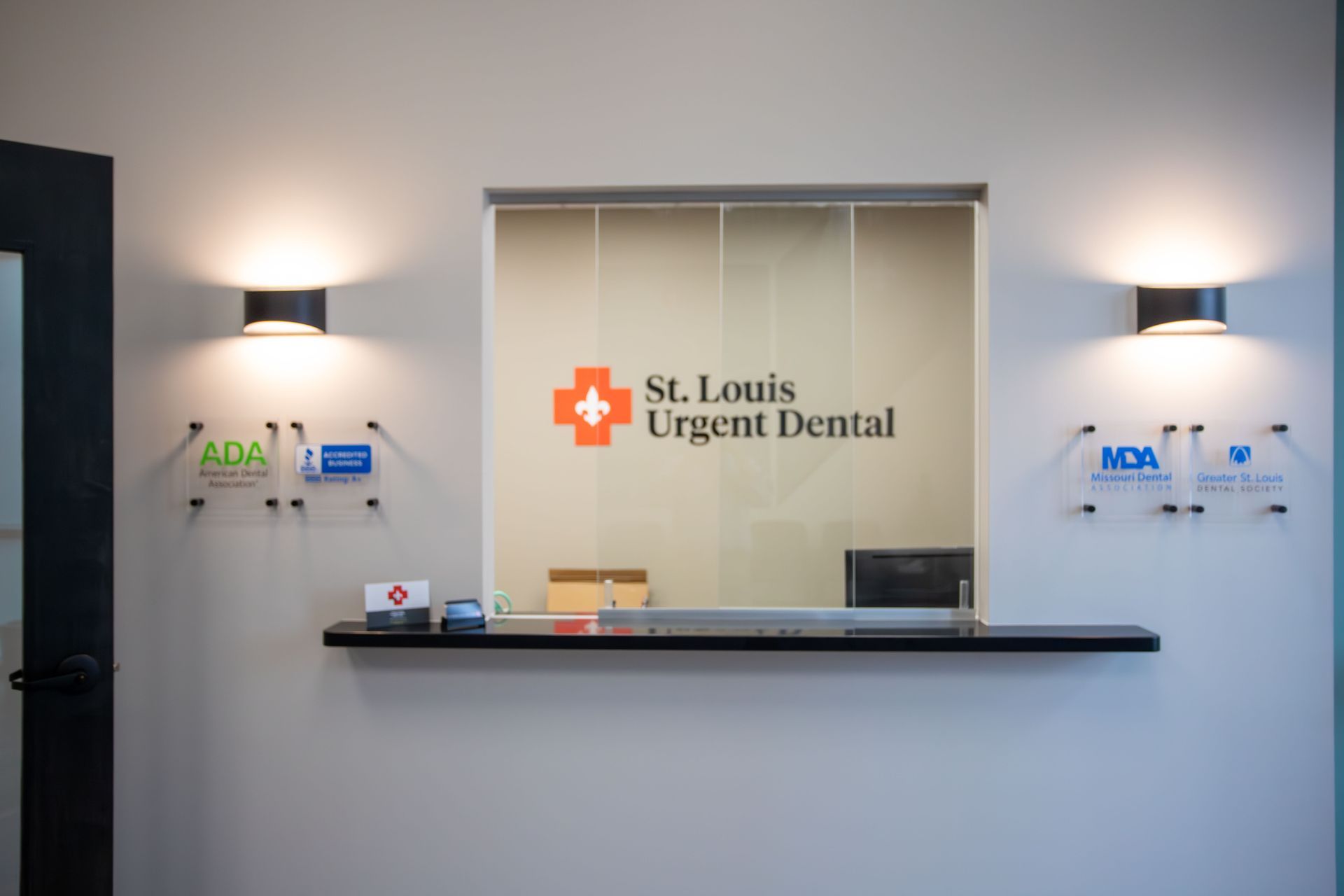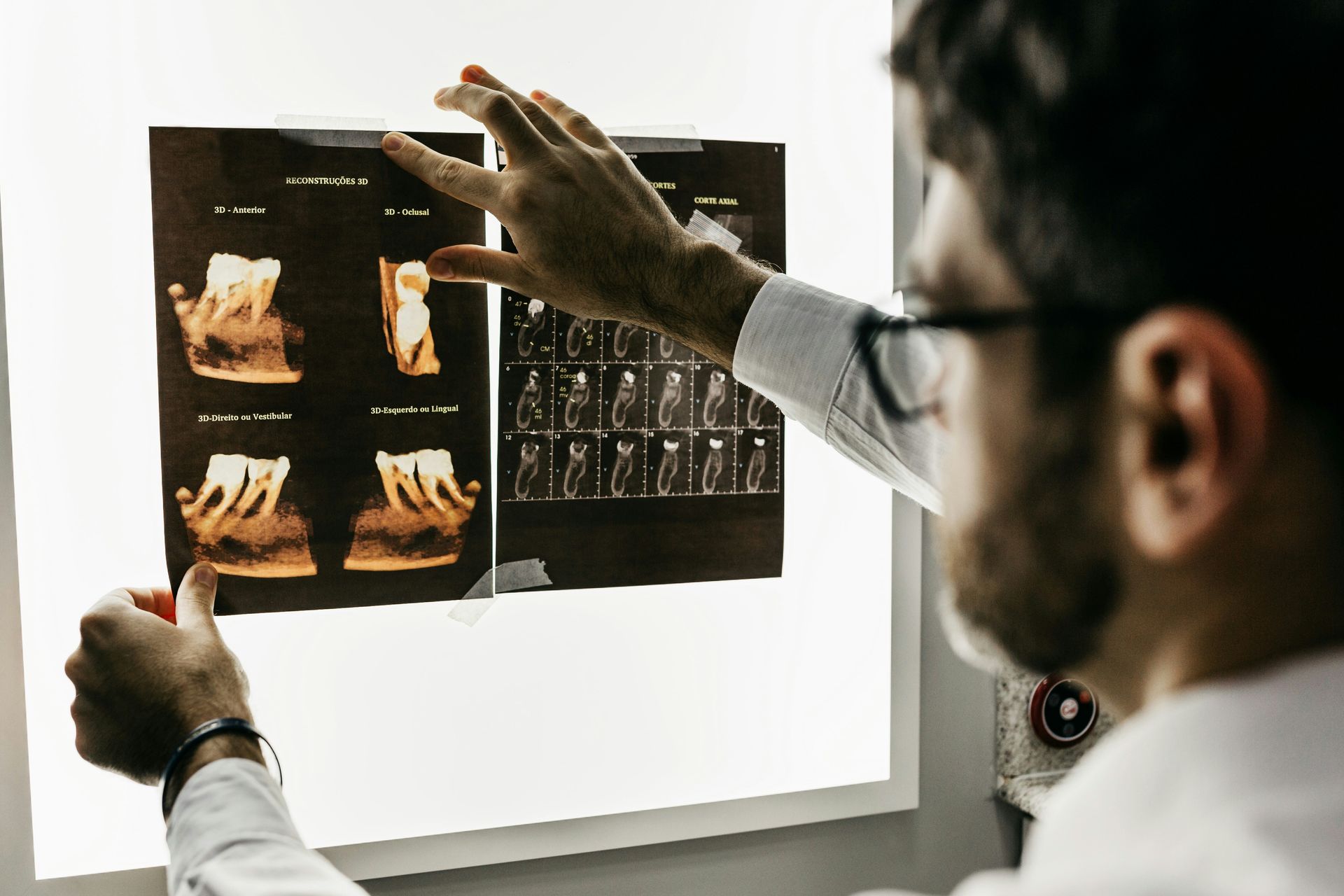Root Canals: A Brief Overview
A root canal is a dental procedure used to treat infection at the center of a tooth (the pulp). The pulp is the soft tissue inside the tooth that contains nerves, blood vessels, and connective tissue. During a root canal, the infected or inflamed pulp is removed, the inside of the tooth is cleaned and disinfected, and then it is filled and sealed to prevent further infection.
Let's look at common questions about root canals so you can keep yourself and your family informed and safe.
What Causes a Root Canal?
Root canal treatment becomes necessary when the pulp inside a tooth becomes infected or inflamed; this can happen for a couple of different reasons:
- Deep Decay: Bacteria can enter the pulp through cavities that have penetrated deep into the tooth.
- Trauma: A cracked or broken tooth can expose the pulp to bacteria.
- Repeated Dental Procedures: Multiple dental procedures on the same tooth can cause irritation and inflammation of the pulp.
- Tooth Fracture: A fracture that extends into the pulp can lead to infection.
Advantages of Having a Root Canal
- Saves Natural Tooth: Root canal treatment allows you to keep your natural tooth, which is often the best option for oral health and function.
- Relieves Pain: Root canal therapy alleviates the pain and discomfort associated with a tooth infection or inflammation.
- Prevents Further Infection: By removing the infected pulp and sealing the tooth, root canal treatment prevents the spread of infection to surrounding tissues.
- Restores Function: After a root canal, the tooth can continue functioning normally for biting and chewing.

Disadvantages of Having a Root Canal
- Potential for Reinfection: Sometimes, a tooth undergoing root canal therapy may become reinfected if the sealing is compromised or new decay develops.
- Requires Multiple Appointments: Root canal treatment typically involves multiple appointments, which can be inconvenient for patients with busy schedules.
- Cost: Root canal therapy can be costly, especially if additional procedures such as crown placement are needed to restore the tooth's function and appearance.
How to Know When You Need a Root Canal
Signs that you may need a root canal include:
- Severe tooth pain, especially when biting or chewing.
- Prolonged sensitivity to hot or cold temperatures.
- Swelling or tenderness in the gums near the affected tooth.
- Darkening of the tooth.
- Pus drainage around the tooth or gums.
Pain/Recovery
During the root canal procedure, local anesthesia is used to numb the tooth and surrounding area, so you shouldn't feel any pain during the treatment. After the procedure, you may experience discomfort or mild pain, which over-the-counter pain medications can help manage. Most patients can resume normal activities the next day, but the tooth and surrounding tissues may take a few days to heal fully.
Prevention
To prevent the need for a root canal, practicing good oral hygiene is essential, such as:
- Brushing your teeth twice a day with fluoride toothpaste.
- Flossing daily to remove plaque and food particles from between your teeth.
- Avoid sugary foods and drinks, which can contribute to tooth decay.
- See your dentist regularly for checkups and cleanings, even if you don't have any symptoms.
Following these preventive measures and seeking prompt treatment for any dental problems may reduce your risk of needing a root canal.

Call STL Urgent Dental Today
Our St. Louis Urgent Dental team is here to help with your urgent, after-hours dental needs! We are open seven days a week (until 9 pm on M-F). To best serve Greater St. Louis, we have three clinics throughout the region.
We are ready to help with dental emergencies, including root canals, crowns, socket grafting, extractions, implants, broken teeth, and more. Check out our procedure pricing and other details here on our website.
Schedule an appointment, and you'll be smiling again in no time!









